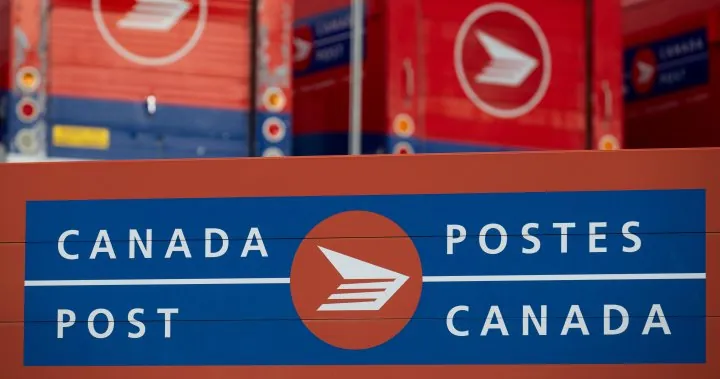
Chaos Ensues in Canada as Postal Strike Disrupts Critical Services and Health Screenings
2024-12-04
Author: Benjamin
The importance of traditional mail has resurfaced in Canada amid an ongoing strike by Canada Post, which has now dragged on for three weeks, revealing the sometimes-overlooked reliance citizens have on postal services. While digital communication has greatly reduced the volume of physical mail — down to just two letters a week per person on average, compared to seven in 2006 — the current crisis underscores how vital that occasional envelope can be.
Marvin Ryder, a business professor at McMaster University, has emphasized that many Canadians have lost sight of the essential services that mail provides, especially regarding the renewal of important documents. "People simply forgot about things like renewing a passport," Ryder stated. Currently, there are over 80,000 passports ready but not delivered, as they depend on traditional mail services.
As the strike continues, numerous critical services such as passport and health card renewals are facing unprecedented delays. The Canadian government has warned that citizens who didn’t pay for expedited services will be severely impacted. In an urgent scenario, individuals needing their passports quickly are advised to reach out directly to Service Canada.
In Ontario, the provincial government is advising those waiting for their health card renewals that they can still receive emergency medical care. Patients should retain their receipts as temporary proof of provincial health insurance eligibility, even with expired cards.
Additionally, the disruption of driver’s licence renewal notices has raised serious safety concerns. The Northumberland Detachment of the Ontario Provincial Police has cautioned drivers to check their licence expiry dates, especially for seniors who may already struggle with mobility and access to timely information. "Without proper reminders, some seniors may inadvertently continue driving on expired licences," cautioned the OPP.
Health screening initiatives are also feeling the impact. For instance, provinces that send at-home cancer screening kits are urging residents not to return completed tests via mail during the strike. In Ontario, individuals who receive fecal immunochemical test (FIT) kits, meant for colorectal cancer screenings, are now required to deliver their samples in person rather than mailing them to the lab. In British Columbia, the cervical cancer self-screening process is similarly on hold due to the inability to send mailing kits, forcing residents to postpone crucial health screenings.
The implications of this strike reach beyond individual inconveniences and directly impact non-profit organizations. Many charities reliant on mail for fundraising, including the VGH and UBC Hospital Foundation, have reported a significant drop in donations due to their inability to distribute mail campaigns. Reports indicate that ticket sales for its annual Millionaire Lottery, which supports vital medical equipment and research, have suffered. The Toronto Zoo's Wildlife Conservancy has also noted a staggering 40 percent drop in donations compared to last year during this critical season, with mounting uncertainty as to how deeply the strike has affected charitable giving.
While digital communication remains intact, several library services dependent on mail are also disrupted. Libraries' inter-library loan services and the delivery of materials to individuals with disabilities are paused, leaving many without access to crucial resources.
With the strike ongoing, it may be essential for Canadians to adapt to alternative means of obtaining critical information and services and to consider online platforms for charitable contributions and communications. The disruption has proved that, despite the digital age, traditional mail continues to play an irreplaceable role in our society — one that must not be overlooked.









 Brasil (PT)
Brasil (PT)
 Canada (EN)
Canada (EN)
 Chile (ES)
Chile (ES)
 España (ES)
España (ES)
 France (FR)
France (FR)
 Hong Kong (EN)
Hong Kong (EN)
 Italia (IT)
Italia (IT)
 日本 (JA)
日本 (JA)
 Magyarország (HU)
Magyarország (HU)
 Norge (NO)
Norge (NO)
 Polska (PL)
Polska (PL)
 Schweiz (DE)
Schweiz (DE)
 Singapore (EN)
Singapore (EN)
 Sverige (SV)
Sverige (SV)
 Suomi (FI)
Suomi (FI)
 Türkiye (TR)
Türkiye (TR)